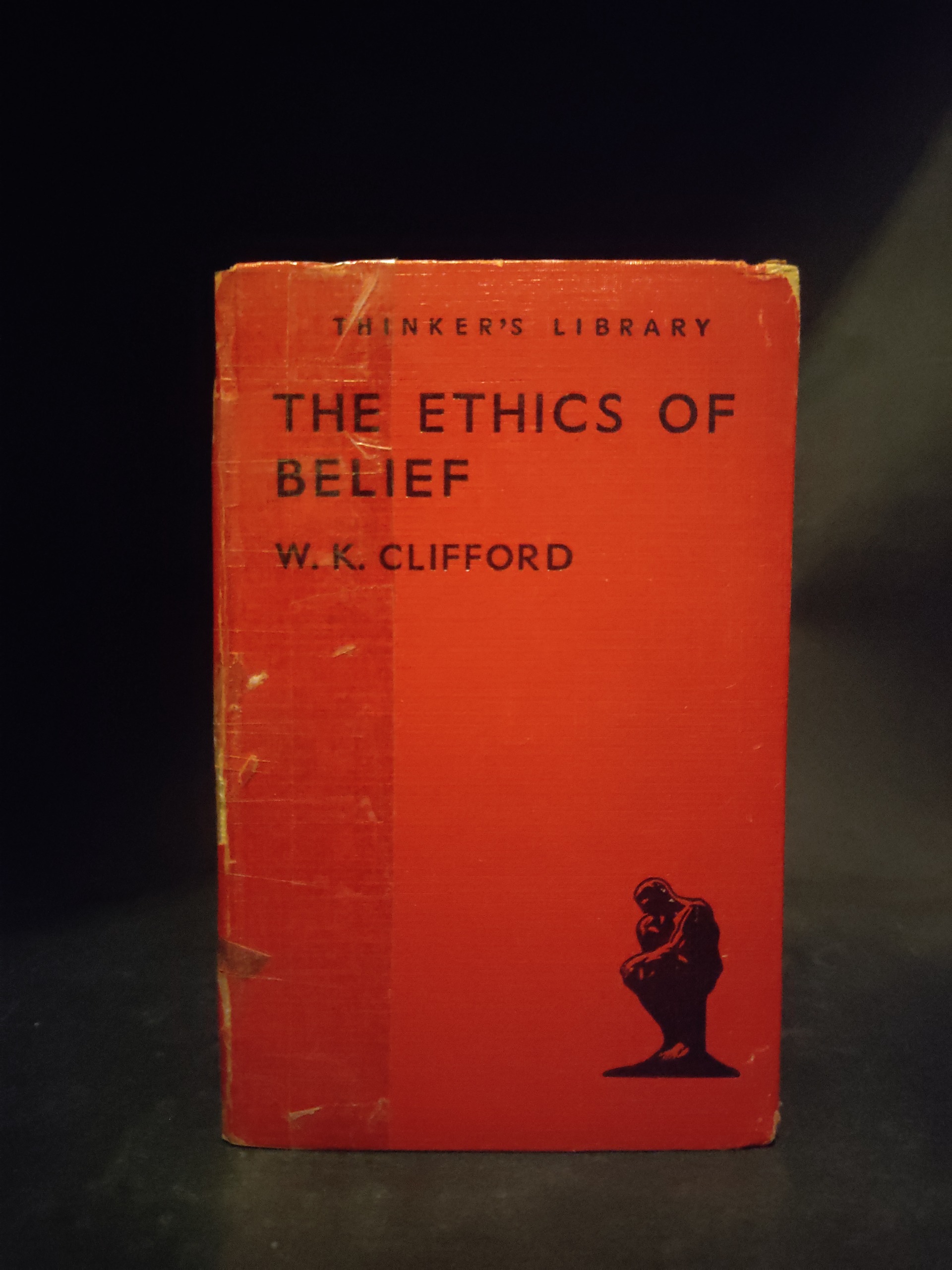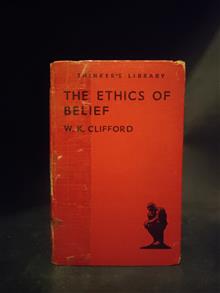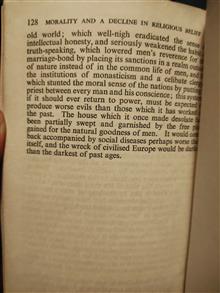



The Ethics Of Belief ، ویلیام کلیفورد(فلسفه ریاضی)
دست دوم
200٬000 تومان
مشخصات کالا
| سال چاپ | 1320-1329 ش - 1950-1941 م |
| نوع چاپ کتاب | چاپ اصل |
توضیحات بیشتر
.
#TheEthicsOfBelief
#WKClifford
1947 Great Britain
in stock
Hard cover
200 Tomans
#ویلیام_کینگدام_کلیفورد
W. K. Clifford (1845-1879) was a noted mathematician and popularizer of science in the Victorian era. Although he made major contributions in the field of geometry, he is perhaps best known for a short essay he wrote in 1876, entitled "The Ethics of Belief",
in which he argued that "It is wrong always, everywhere, and for any one, to believe anything upon insufficient evidence." Delivered initially as an address to the august Metaphysical Society (whose members included such luminaries as Alfred Lord Tennyson,
William Gladstone, T. H. Huxley, and assorted scientists, clerics and philosophers of differing metaphysical views, "The Ethics of Belief" became a rallying cry for freethinkers and a bone of contention for religious apologists. It continues to be discussed
today as an exemplar of what is called evidentialism, a key point in current philosophy of religion debates over justification of knowledge claims. In this book, Timothy J. Madigan examines the continuing relevance of "The Ethics of Belief" to epistemological
and ethical concerns. He places the essay within the historical context, especially the so-called Victorian Crisis of Faith of which Clifford was a key player. Cliffords own life and interests are dealt with as well, along with the responses to his essay by
his contemporaries, the most famous of which was William Jamess "The Will to Believe." Madigan provides an overview of modern-day critics of Cliffordian evidentialism, as well as examining thinkers who were positively influenced by him, including Bertrand
Russell, who was perhaps Cliffords most influential successor as an advocate of intellectual honesty. The book ends with a defense of "The Ethics of Belief" from a virtue-theory approach, and argues that Clifford utilizes an "as-if" methodology to encourage
intellectual inquiry and communal truth-seeking.
#مطالعه_ریاضی #فلسفه_اخلاق #علوم_انسانی #مطالعه_فلسفه #فلسفه_ریاضی #مطالعه_ادبیات #کتاب_ریاضی #خرید_کتاب_اورجینال